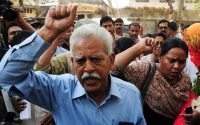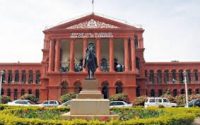HC concerned over Intelligence wing’s phone calls to petitioner
Source: thehindu.com
Concerned over the impact of three personnel from the State’s Intelligence wing calling up a petitioner to enquire about his PIL petition in the court, the Karnataka High Court on Friday directed the State government to spell out what measures it will take to prevent such instances in future.
The court also directed the police inspector and two head constables, attached to the Intelligence wing of Madhugiri in Tumakuru district, to file affidavits explaining why they called the petitioner.
A Division Bench comprising Chief Justice Abhay Shreeniwas Oka and Justice Mohammad Nawaz issued the directions after going through a report submitted by K.V. Sharath Chandra, Inspector-General of Police (Southern Range), on a direction issued by the court on September 6.
The court had sought a report on the claim made by Mallikarjuna A., a native of Gubbi taluk in Tumakuru district, who had filed a petition on issues related to drought and floods. He had stated that he had received calls from the Intelligence wing and he had recorded the conversations.
“We fail to understand the object of Intelligence wing officers calling the petitioner thrice in a gap of 10 minutes to get information on the PIL petition filed by him before this court. The officers could have straight away got the information either from the advocate representing the State in the case, or the concerned department,” the court observed.
Though the conversations of the officers with the petitioner did not reveal any threat as they had only enquired about his PIL after a Kannada daily published a report that the court was displeased about government’s actions related to cattle camps, the Bench said prima facie the calls made to the petitioner cannot be treated as innocuous as the officers had not disclosed the source from where they got the petitioner’s phone number.
Earlier, the Bench had orally observed whether calls made by Intelligence wing would not amount to interference in court’s proceedings while also pointing out the possible impact on a citizen, who is before the court, when officials call him to know the details. Will such actions not deter the people from approaching the court, the Bench asked.



